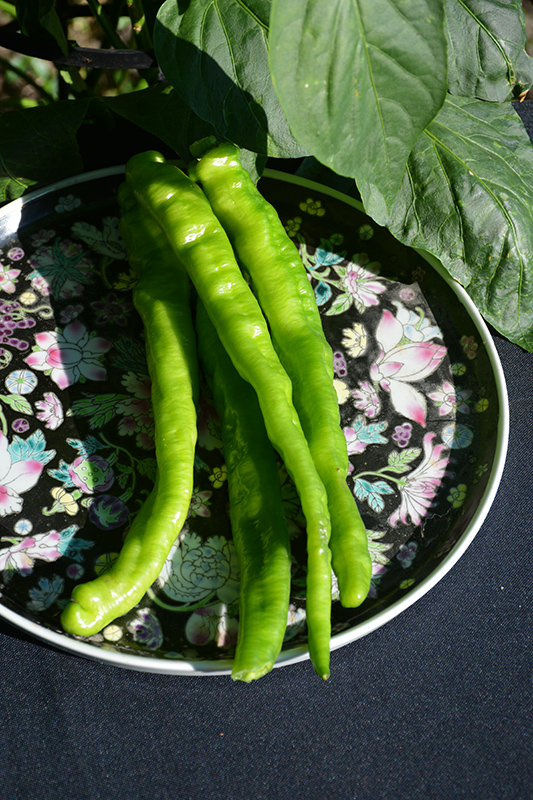Height: 24 inches
Spacing: 18 inches
Sunlight:
![]()
Hardiness Zone: (annual)
Other Names: Sari Tatli Sivri Pepper
Group/Class: Heirloom
Description:
An early maturing and extremely high yielding heirloom variety; 12" long and thin peppers develop from green to yellow and finally matures to orange and red; sweet and fruity, excellent for fresh eating, pickling, frying and drying for paprika
Edible Qualities
Corbaci Pepper is an annual vegetable plant that is typically grown for its edible qualities, although it does have ornamental merits as well. It produces large light green long peppers (which are technically 'berries') with orange overtones which can be harvested at any point. The fruit will often fade to red over time. The peppers have a sweet taste and a crunchy texture.
The peppers are most often used in the following ways:
- Eating When Cooked/Prepared
- Cooking
- Drying
- Pickling
- Seasoning
Planting & Growing
Corbaci Pepper will grow to be about 24 inches tall at maturity, with a spread of 15 inches. When planted in rows, individual plants should be spaced approximately 18 inches apart. This vegetable plant is an annual, which means that it will grow for one season in your garden and then die after producing a crop.
This plant can be integrated into a landscape or flower garden by creative gardeners, but is usually grown in a designated vegetable garden. It should only be grown in full sunlight. It is very adaptable to both dry and moist growing conditions, but will not tolerate any standing water. It may require supplemental watering during periods of drought or extended heat. It is not particular as to soil type or pH. It is somewhat tolerant of urban pollution. This is a selected variety of a species not originally from North America, and it is considered by many to be an heirloom variety.
Corbaci Pepper is a good choice for the vegetable garden, but it is also well-suited for use in outdoor pots and containers. With its upright habit of growth, it is best suited for use as a 'thriller' in the 'spiller-thriller-filler' container combination; plant it near the center of the pot, surrounded by smaller plants and those that spill over the edges. Note that when growing plants in outdoor containers and baskets, they may require more frequent waterings than they would in the yard or garden.

